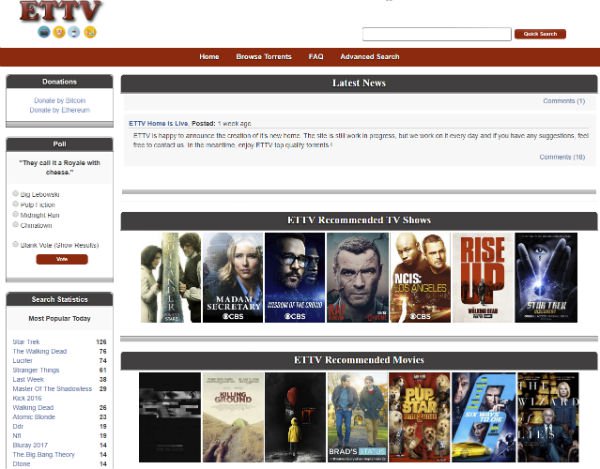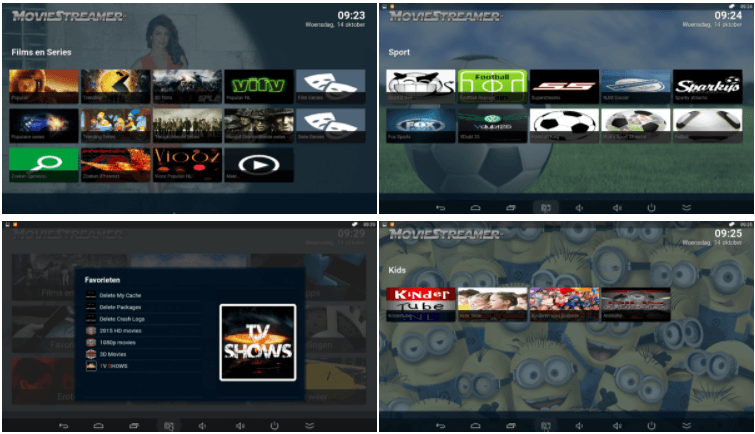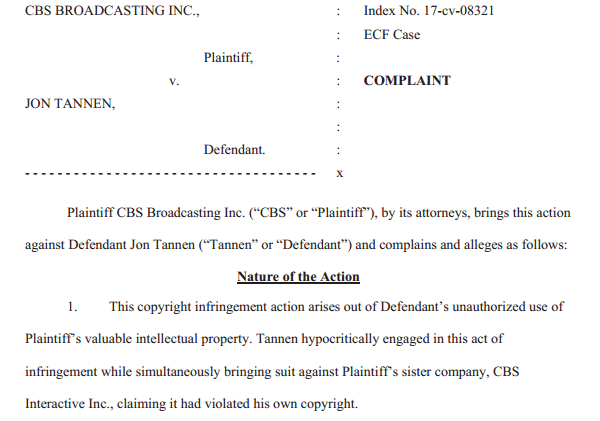Trolls Want to Seize Alleged Movie Pirates’ Computers
mercredi 1 novembre 2017 à 11:16 Five years ago, a massive controversy swept Finland. Local anti-piracy group CIAPC (known locally as TTVK) sent a letter to a man they accused of illegal file-sharing.
Five years ago, a massive controversy swept Finland. Local anti-piracy group CIAPC (known locally as TTVK) sent a letter to a man they accused of illegal file-sharing.
The documents advised the man to pay a settlement of 600 euros and sign a non-disclosure document, to make a threatened file-sharing lawsuit disappear. He made the decision not to cave in.
Then, in November 2012, there was an 8am call at the man’s door. Police, armed with a search warrant, said they were there to find evidence of illicit file-sharing. Eventually the culprit was found. It was the man’s 9-year-old daughter who had downloaded an album by local multi-platinum-selling songstress Chisu from The Pirate Bay, a whole year earlier.
 Police went on to seize the child’s Winnie the Pooh-branded laptop and Chisu was horrified, posting public apologies on the Internet to her young fans. Five years on, it seems that pro-copyright forces in Finland are treading the same path.
Police went on to seize the child’s Winnie the Pooh-branded laptop and Chisu was horrified, posting public apologies on the Internet to her young fans. Five years on, it seems that pro-copyright forces in Finland are treading the same path.
Turre Legal, a law firm involved in defending file-sharing matters, has issued a warning that copyright trolls have filed eight new cases at the Market Court, the venue for previous copyright battles in the country.
“According to information provided by the Market Court, Crystalis Entertainment, previously active in such cases, filed three new copyright cases and initiated five pre-trial applications in October 2017,” says lawyer Herkko Hietanen.
The involvement of Crystalis Entertainment adds further controversy into the mix. The company isn’t an official movie distributor but obtained the rights to distribute content on BitTorrent networks instead. It doesn’t do so officially, instead preferring to bring prosecutions against file-sharers’ instead.
Like the earlier ‘Chisu’ case, the trolls’ law firms have moved extremely slowly. Hietanen reports that some of the new cases reference alleged file-sharing that took place two years ago in 2015.
“It would seem that right-holders want to show that even old cases may have to face justice,” says Hietanen.
“However, applications for enforceability may be a pre-requisite for computer confiscation by a bailiff for independent investigations. It is possible that seizures of the teddy bears of the past years will make a comeback,” he added, referencing the ‘Chisu’ case.
Part of the reason behind the seizure requests is that some people defending against copyright trolls have been obtaining reports from technical experts who have verified that no file-sharing software is present on their machines. The trolls say that this is a somewhat futile exercise since any ‘clean’ machine can be presented for inspection. On this basis, seizure on site is a better option.
While the moves for seizure are somewhat aggressive, things haven’t been getting easier for copyright trolls in Finland recently.
In February 2017, an alleged file-sharer won his case when a court ruled that copyright holders lacked sufficient evidence to show that the person in question downloaded the files, in part because his Wi-Fi network was open to the public
Then, in the summer of 2017, the Market Court tightened the parameters under which Internet service providers are compelled to hand over the identities of suspected file-sharers to copyright owners.
The Court determined that this could only happen in serious cases of unlawful distribution. This, Hietanen believes, is partially the reason that the groups behind the latest cases are digging up old infringements.
“After the verdict of the summer, I assumed that rightsholders would have to operate with old information, at least for a while,” he says. “Rightsholders want to show that litigation is still possible.”
The big question, of course, is what people should do if they receive a settlement letter. In some jurisdictions, the advice is to ignore, until proper legal documentation arrives.
Hietanen says the matter in Finland is serious and should be treated as such. There’s always a possibility that after failing to receive a response, a copyright holder could go to court to obtain a default judgment, meaning the alleged file-sharer is immediately found guilty.
In the current cases, the Market Court will now have to decide whether unannounced seizures are required to preserve evidence. For cases already dating back two years, there will be plenty of discussions to be had, for and against. But in the meantime, Hedman Partners, the company representing the copyright trolls, warn that more cases are on the way.
“We have put in place new requests for information after the summer. We have a large number of complaints in preparation. More are coming,” lawyer Joni Hatanmaa says.
Source: TF, for the latest info on copyright, file-sharing, torrent sites and ANONYMOUS VPN services.
 Earlier this year the torrent community entered a state of shock when another major torrent site suddenly
Earlier this year the torrent community entered a state of shock when another major torrent site suddenly 


 Just a few days ago we
Just a few days ago we 

